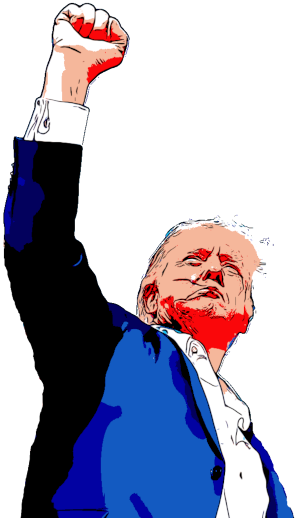Trump's 'Liberation Day' Tariffs Set to Impact Global Trade
President Donald Trump is set to announce a sweeping set of tariffs on Wednesday, targeting multiple countries in what his administration calls ‘Liberation Day.’
President Donald Trump is poised to unveil a significant series of reciprocal tariffs on Wednesday, marking what his administration has dubbed ‘Liberation Day.’ The move is part of a broader strategy to address what Trump and his team perceive as unfair trade practices that have contributed to the U.S.’s record $1.2 trillion trade deficit in 2024. While the White House has been tight-lipped about the specifics, speculation has centered around a group of countries known as the ‘Dirty 15,’ which are believed to be among the primary targets due to their significant trade deficits with the U.S.
The term ‘Dirty 15’ was first mentioned by Treasury Secretary Scott Bessent in a March interview with FOX Business, referring to the 15% of countries that contribute the most to the U.S. trade deficit. Although Bessent did not name specific countries, various official documents have hinted at potential targets. A notice from the Office of the U.S. Trade Representative in March listed countries such as Argentina, Australia, Brazil, Canada, China, the European Union, India, Indonesia, Japan, Korea, Malaysia, Mexico, Russia, Saudi Arabia, South Africa, Switzerland, Taiwan, Thailand, Turkey, the United Kingdom, and Vietnam for review of their trade practices. Additionally, the 2024 Commerce Department trade deficit report highlighted countries like China, the European Union, Mexico, Vietnam, Ireland, Germany, Taiwan, Japan, South Korea, Canada, India, Thailand, Italy, Switzerland, Malaysia, and Indonesia as having the highest trade deficits with the U.S.
Despite the focus on the ‘Dirty 15,’ Trump has indicated that the tariffs might extend beyond these countries. During a conversation with reporters on Air Force One, he suggested that the tariffs could affect ‘all countries.’ White House press secretary Karoline Leavitt confirmed that Trump has been in discussions with various countries about the potential tariffs, and she emphasized that ‘Liberation Day’ would be a pivotal moment in modern American history.
Leavitt also addressed concerns about the potential impact of the tariffs on consumer prices, dismissing fears that they would drive up costs. She argued that the tariffs would instead bolster the U.S. economy, stating that Trump’s team of advisors has been working on these issues for decades with the goal of restoring America’s manufacturing prowess.
The new tariffs are expected to be reciprocal, matching other countries’ tariff rates, and will also address issues such as regulations, government subsidies, and exchange rate policies to mitigate trade barriers. Trump has expressed his frustration with global trade practices in a March post on Truth Social, stating, ‘For DECADES we have been ripped off and abused by every nation in the World, both friend and foe. Now it is finally time for the Good Ol’ USA to get some of that MONEY, and RESPECT, BACK. GOD BLESS AMERICA!!!’
The Trump administration has already implemented several tariffs, including a 20% tariff on shipments from China, 25% tariffs on steel and aluminum imports, up to 25% tariffs on certain goods from Mexico and Canada, and a 25% tariff on imported auto vehicles. As the world awaits the details of the ‘Liberation Day’ tariffs, the global trade landscape is poised for significant changes.

